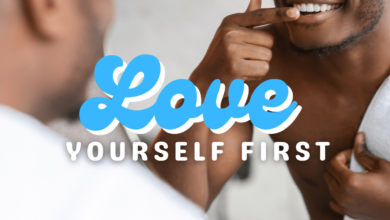Boost Your Self-Esteem: How to Be Confident in Yourself

Ever felt self-doubt or like you’re not enough, always comparing yourself to others? It’s a common struggle. But here’s the good news – you can overcome that feeling. You can break free from low self-esteem and find the confidence that leads to success and happiness.
Let’s look at ways to boost your self-esteem.
The Real Meaning of Confidence
Many think confidence comes from how others see us and our achievements. But real confidence is more than just looks. It’s about knowing and believing in ourselves. It’s about being strong inside. This helps us face tough times and chase our dreams with power and courage.
The Psychological Perspective on Self-Confidence
Experts in the mind have looked at self-confidence a lot. They say it’s made of many parts. Being confident means you trust your skills and feel good about who you are. It’s tied to being happy and feeling good mentally. It’s key for growing and reaching goals.
Separating Competence and Confidence: How They Interact
Many believe confidence only comes from being good at something. But the truth is, you can be confident even if you’re not the best. Some who are very skilled might not be confident. This could be because they doubt themselves or fear failing.
Realize that confidence isn’t always the same everywhere in our lives. It grows as we work on different skills and change how we think. Understanding the mix of skill and confidence lets us avoid judging success based only on what others see.
Seeing confidence in a new way helps us know how to build it. It’s a journey we’re on for life. It needs us to look inward, be kind to ourselves, and be brave. With effort, we can discover our full ability and use confidence to shine in all we do.
How to Be Confident in Yourself: Embracing Your Inner Strength
Building self-confidence comes from within you. It’s about finding your inner strength. We’ll guide you through exercises to boost your confidence. You’ll learn how to handle challenges like imposter syndrome.
There’s a powerful method for growing inner strength. It involves exercises that make you step outside your comfort zone. These efforts help you see your true potential and build your resilience. You’ll understand more about what you can achieve.
Dealing with imposter syndrome is essential when working on your self-confidence. This feeling makes you doubt yourself and your abilities. But you can fight it by recognizing it and tackling it head-on. This way, you break free from its hold and see your real value.
Getting confident is an ongoing journey that requires patience and belief in your abilities. By trusting your inner strength and constantly boosting your confidence, you will step into your full potential, and life will feel more empowering when you do.
The Role of Self-Talk in Building Confidence
In our quest to improve self-confidence, self-talk is a key player. The way we speak to ourselves inside our heads greatly affects our confidence. Using self-talk wisely can change our thoughts and make us more self-assured.
Transforming negative thoughts into uplifting affirmations is crucial. When we feel doubt or speak negatively about ourselves, we must act. For instance, instead of “I’m not enough,” we can say, “I can achieve amazing things.”
Self-talk methods are vital for staying confident. An effective approach is to regularly affirm positivity. Saying statements like, “I am strong and capable,” repeatedly can shape a positive self-image. Practice is crucial; positive self-talk becomes natural with time.
Visualizing success is a strong self-talk tool. By picturing accomplishing our goals and focusing on positive outcomes, our confidence grows. This method utilizes our subconscious thoughts, helping us reach our goals and boost our self-belief.
To wrap up, self-talk greatly influences our self-confidence. By changing negative thoughts into positive ones and using smart self-talk tactics, we shape our minds for the better. Let’s make the most of self-talk in our self-confidence journey to see real change in our lives.
Physical Health and Confidence Synergy
We’ll look at how physical health and confidence work together. Taking care of our body affects more than just our health. It’s a key to having more confidence too.
Nutrition and Self-Esteem: Fueling the Mind and Body
Eating right is crucial for our health, inside and out. The nutrients in our food help our bodies work well. But, there’s a mental boost from a healthy diet too.
Studies show eating well can help us feel good about ourselves. When we choose healthy foods, our brains work better. This improves our mood, self-esteem, and confidence.
We should include a mix of foods like fruits, veggies, and lean proteins in our meals. This change in diet can really lift how we see ourselves.
Exercise and Its Direct Impact on Self-Confidence
Exercise is an amazing way to boost how we feel. It makes our bodies release feel-good hormones. These hormones can make us happier and more confident.
Getting regular exercise builds confidence in unique ways. It lets us set and beat personal fitness goals. Each victory boosts our self-esteem.
Working out also improves how we see our bodies. It makes us stronger and fitter. We learn to love and respect what our bodies can achieve.
By eating well and staying active, we nourish our self-confidence. It leads to better self-esteem and how we see ourselves in a good light.
Embracing Failure as a Teacher: Learning from Mistakes
Learning to see failure as a teacher is key in our journey to build confidence and a growth mindset. Mistakes aren’t signs we’re not good enough. They’re chances for us to learn and get better. This change in thinking helps us grow confident in a positive way and face challenges with strength.
Failure doesn’t mean the end. It provides lessons that help us grow in our personal and work lives. It teaches us to be humble, never give up, and bounce back from hard times. When we fail, it’s important to think about what happened, learn from our errors, and find ways to do better next time. This not only keeps us from making the same mistakes but also helps us know more about ourselves and what we can do.
To learn from failure, we need to be open and eager to learn. Instead of being upset about mistakes, we should be curious about them. We should want to find new ways to solve problems. Seeing failure as part of the journey to success is a big shift in mindset.
One powerful way to adopt a positive view of failure is through a growth mindset. This view says our skills and smarts can improve. Failure is just a small, temporary hurdle. With this mindset, we believe we can always learn and grow. So when we face tough times, we face them with a strong, can-do attitude.
Getting more confident without being too proud is hard but possible. It needs us to be humble. Embracing failure means we admit we have areas to get better at. It’s knowing that failing doesn’t make us less important. It’s just one step on the way to reaching our goals.
Seeing failure as a way to get better helps us become more certain in our abilities. Viewing failure positively helps us stay humble and focused on what really matters. Every mistake is a lesson that takes us closer to success. We grow from every failure, becoming stronger and better than before.
Developing a Strong Support System
It’s key to have a strong support system for better self-esteem and confidence. Being with people who support you boosts your belief in yourself. This helps you do well and feel good.
Choosing Relationships That Bolster Self-Belief
Choose relationships that make you feel good about yourself. Look for friends and mentors who want to see you grow. They’ll help you feel more confident and less unsure. With their support, you’ll feel better about yourself.
It’s better to have a few strong connections than many weak ones. Find people who truly support and believe in you. These people will stand by you and help you always.
How a Positive Social Circle Can Enhance Self-Worth
The right social circle can really lift your self-worth. Being around people who are positive and believe in you can make you feel more confident. They see your potential and help you see it, too.
With a strong support system, you can open up and share your ups and downs. This makes your friendships deeper and helps you grow. Being with those who inspire you will make you feel better and more confident.
It takes work and time to build a real support system. Focus on the relationships that help you reach your goals. Look for people who support you and want to see you do well.
Having a good support system and meaningful relationships is crucial for growing your self-worth and confidence. Surround yourself with people who truly care about you and your success. Their positivity and support will be the bedrock of your self-esteem.
The Difference Between Bravado and Genuine Confidence
Confidence is often thought of as bravado. Actually, they are different. Bravado is like a mask. It hides the real doubts and fears people have. On the flip side, genuine confidence comes from truly believing in yourself and what you can do.
Gauging Self-Assurance Without the Arrogance
It’s key to know how sure of yourself you are without being arrogant. Real confidence comes with being humble and knowing your limits. Arrogance is about thinking too highly of yourself. Here are some ways to tell if you’re really confident:
- Honestly look at your strengths and weaknesses. Knowing what you’re good at and where you can improve helps you be really sure of yourself.
- Being confident means being humble and respectful to others. It sees power in helping and lifting others up, not in putting them down.
- Always be open to feedback. Seeing feedback as a chance to get better is a sign of true confidence. It means you’re open to learning and growing.
Cultivating a Sincere Self-Image
To truly be confident, you have to see yourself in a true and good light. This means liking who you are and what you do. Here’s how you can build this kind of real confidence:
- Find what you’re good at and focus on those strengths. Being proud of what you achieve helps boost your true self-image.
- Take good care of yourself. This means looking after your body, mind, and soul. Doing things that make you happy and healthy is key.
- Tell yourself good things. Turning negative thoughts about yourself into positive ones can really change how you feel about yourself.
Building true confidence isn’t easy, but it’s worth it. With a real view of yourself and a quiet kind of confidence, you can show more assurance in everything you do.
Discipline and Work Ethic: The Foundations of Self-Esteem
Discipline and work ethic are key to building self-esteem. They teach us to be responsible and in control. This helps us see that we can set and meet our goals.
Having a strong work ethic is just as vital. It means we give our all to projects, even when it’s hard. Showing strong work ethic makes us proud. It boosts our self-esteem and makes us more confident.
With discipline and a strong work ethic, we can raise our self-esteem. Being disciplined helps us tackle challenges and keep going, no matter what. A good work ethic ensures we always strive to achieve our aims.




